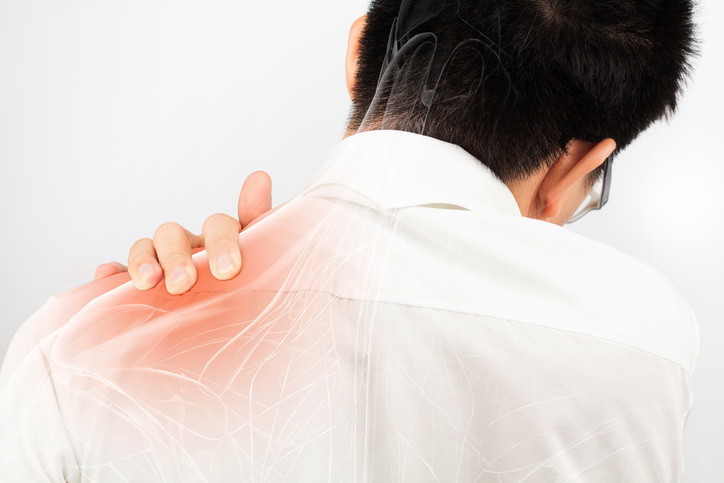Radiating pain from a car accident is a symptom of nerve affectation or nerve root impingement. If this symptom is starting to bother your life and work, know that our Eason & Tambornini personal injury lawyers are here to help you. Our lawyers can help you understand how radiating pain from a car accident can happen, the meaning of radiculopathy, what radiating pain feels like, and if you can get muscle spasms from a car accident. This type of pain can take a toll not only on your physical well-being but also on your finances, so if you have questions regarding radiating pain, know that our office is always open to welcoming you.

Car accidents can cause both a radiating pain and referred pain. Although a lot of people think those mean the same thing, but they do not.
Referred pain is oftentimes general and can be felt in different areas but close to the original site of injury. Radiating pain, on the other hand, is the affectation of the nerve and its nerve root, and the pain feeling travels down the length of the nerve and affects all the areas supplied by the nerve.
For example, if the car accident you were involved in caused one of the discs in your lower back to herniate or bulge out, the disc’s abnormal shape could be pressing and irritating a lumbar nerve root, resulting in sciatica or radiating pain that shoots down the leg.
Radiculopathy is an injury to the nerve root resulting from nerve root impingement or compression. The compression may be due to a bulged or herniated disc, bone spur formation, abnormal curvature of the spine (scoliosis), improper posture, and diseases like diabetes.
It’s not uncommon for someone who has been in a car accident to develop radiculopathy. The sudden hyperextension of the neck and back could easily cause a disc to bulge out or even herniate. The disc’s abnormal shape will put some pressure on the nerve as it exits the vertebra and affects how it usually functions.
The symptoms of radiculopathy include pain along the nerve’s path, weakness of the muscles supplied by the nerve, and abnormal sensations like numbness and tingling along with the sensory distribution of the nerve.
Radiating pain feels different from one person to another, but most describe it as a deep, stabbing pain that originates in the area of the nerve root compression. The pain then travels down the path of the affected nerve and is described as a shooting, burning, throbbing, electric shock-like type of pain. According to some people who have radiating pain, the numbness feels like your arm or leg is constantly wrapped in a cling wrap or film.
Depending upon the severity of the nerve and nerve root compression, radiating pain can be worsened or relieved by certain positions. For example, extending and rotating the lower back can worsen sciatic pain; while bending forward or lying down somewhat eases the pain.
Any injury to the muscles can cause spasms or involuntary muscle contractions, which may or may not be painful.
Because of excessive, blunt trauma sustained from a car accident, a large muscle group such as the neck and back muscles are affected. The tissues will sustain an injury, leading to the activation of the inflammatory process. During the inflammatory process, other changes also occur. The tissues run out of energy, and they even lose fluids and electrolytes. When this happens, the cells of the muscle fibers become hyperexcitable. If they are hyperexcitable, any changes in their extracellular and intracellular concentration can easily trigger the muscle cells to contract, thus the development of spams involuntarily.
Gentle muscle stretching and light-to-moderate intensity exercises will often treat muscle spasms. Hot compresses and massage also help. If pain is present, analgesics can help.
What can you do?
Chronic radiating pain affects not only your personal life but professional as well. It prevents you from doing things you usually enjoy. It also impacts your ability to work, leading to lost income and additional expenses for your radiculopathy treatment.
All these can take a toll on you and your family. If the car accident was the result of someone’s carelessness, you need to know that you should not shoulder all the expenses yourself. Call one of our Eason & Tambornini lawyers so we can explain to you the legal process involving radiating pain and car accidents. We’ll help you understand how a vehicular collision can cause radiating pain, radiculopathy, and muscle spasms after a car accident, how they feel, and what you can do. Our Eason & Tambornini car accident attorneys are just a phone call away, so arrange an appointment with us to learn more about radiating pain from a car accident.

